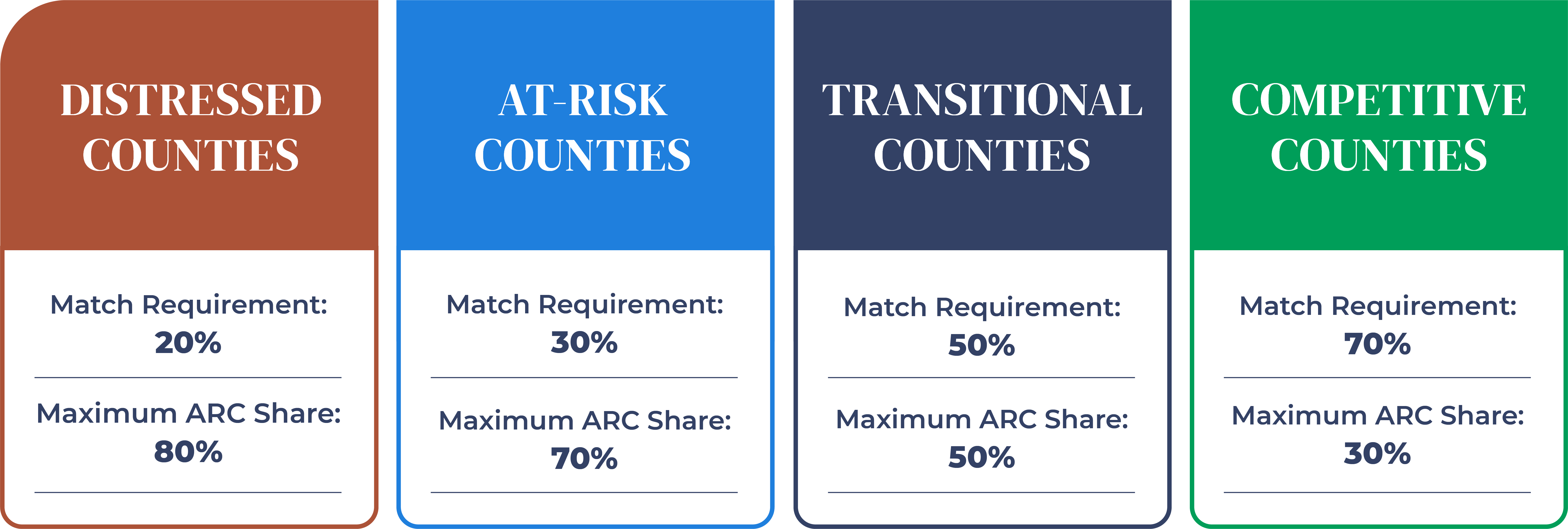Matching refers to the portion of project costs not paid by ARC funds. By law, most ARC grants require match funding. In order to receive an ARC grant award, applicants must submit proof of match that meets ARC’s match requirements. ARC State Program Managers or an ARC Project Coordinator can offer guidance on the amount of match required and available match sources, and provide information about any additional state matching requirements.
Many federal requirements related to match funding can be found in 2 CFR § 200.306, “Cost Sharing or Matching.” Amounts proposed for match funding must be allowable per applicable federal cost principles and adequately documented. All match funding becomes part of the project and is subject to federal regulations.
Use the map to find the economic status and match rates of Appalachian counties, or visit this web mapping application for more options.
How Match Rates Work
Interactive Map of County Economic Status and Distressed Areas, FY 2025
Each fiscal year, ARC evaluates economic data and categorizes the economic status of each county in the Appalachian Region as distressed, at-risk, transitional, competitive, or attainment. Each economic designation has a different match rate, which determines the amount of funding that ARC is able to provide. A grant’s final match rate is determined by the economic designations of the proposed service area, which may include multiple counties, each with a different economic status. Projects serving counties experiencing higher levels of economic distress are eligible for more funding from ARC and a lower required match rate, as reflected below:

These percentages apply to single county projects. The match percentage for multi-county projects will be determined on a project-by-project basis. Contact your state program manager for help in determining the match required for your project.
Types of Match
All applications for ARC funding must include a formal letter from the matching source indicating a firm commitment to provide the required match.
Cash is the most common form of match. Cash match is often drawn from grantees’ own funds or cash donations from non-federal third parties, such as partner organizations. A cash match contribution is an actual cash contribution. Loans are also counted as cash.
Match can also be pledged as “in-kind” or non-cash donations — or, rather, the value of non-cash donations. These can be in the form of real property (including land and buildings), equipment, supplies, services, training, or other expendable property.
Examples of in-kind donations include, but are not limited to:
- Personnel time given to the project
- Person on loan from another organization/corporation
- Donation of or use of equipment, like use of a crane or bulldozer
- Expert services, like engineering or architectural services
- Value of a lease for project space
State program managers can assist with answering questions about match requirements and helping you find sources of match funds. See additional match resources below.


